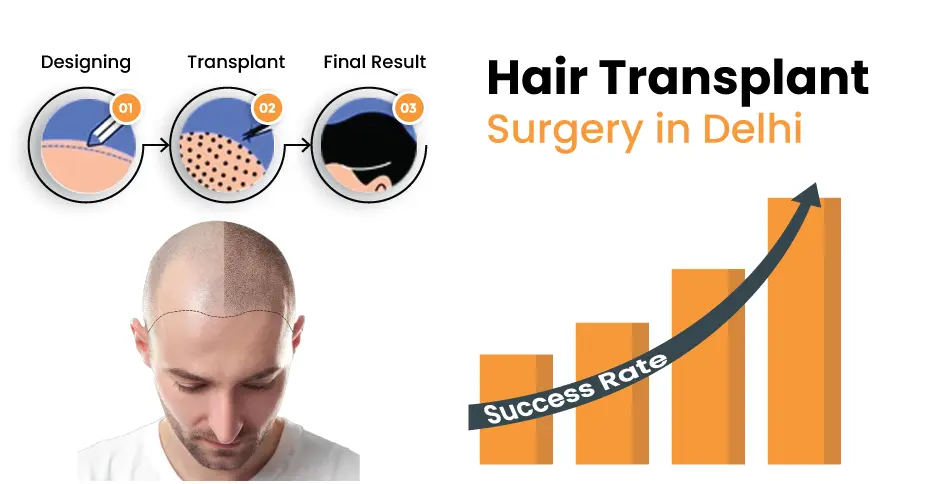
DMC Trichology is known for providing the best hair transplant in Delhi, performed by expert surgeons. Our clinical hair transplant treatments are 100% safe and result-oriented. At DMC Trichology, we offer world-class hair transplant results at the most affordable prices. This is possible because of the advanced techniques that we use at our clinic.
Hair loss or alopecia can affect the scalp or any part of the body and can be temporary or permanent. The loss of hair can result from genetics, hormonal changes, medical conditions or a normal part of ageing. An individual has approximately 1,00,000-1,50,000 hair on their head. Losing anywhere from 50 to 100 strands of hair per day is normal. However, excessive hair loss can be alarming. To manage it one can go for hair transplantation, an amazing technique of hair restoration.
DMC Trichology specialises in hair restoration surgeries, employing a team of renowned hair transplant surgeons, who utilize modern equipment and innovative techniques to deliver positive outcomes for patients.
A hair transplant is a minimally invasive surgical procedure in which hair follicles are extracted from a donor site (Generally the back or sides of the head) and transplanted to the balding or thinning areas. In other words, we can say that hair is taken from one part of the scalp area and implanted into another part where there is almost no hair. Hair transplants are generally performed by hair transplant surgeons. The procedure can take 4–8 hours; most people can return to work within 2–5 days. Hair transplants can give permanent, natural-looking results. However, the transplanted hair will fall out within 2–3 weeks, and new growth won't be noticeable for a few months.
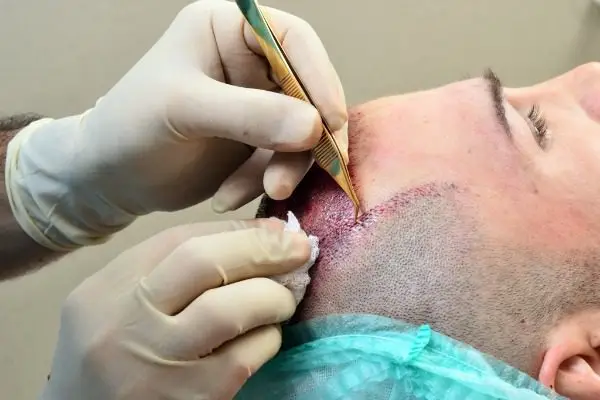
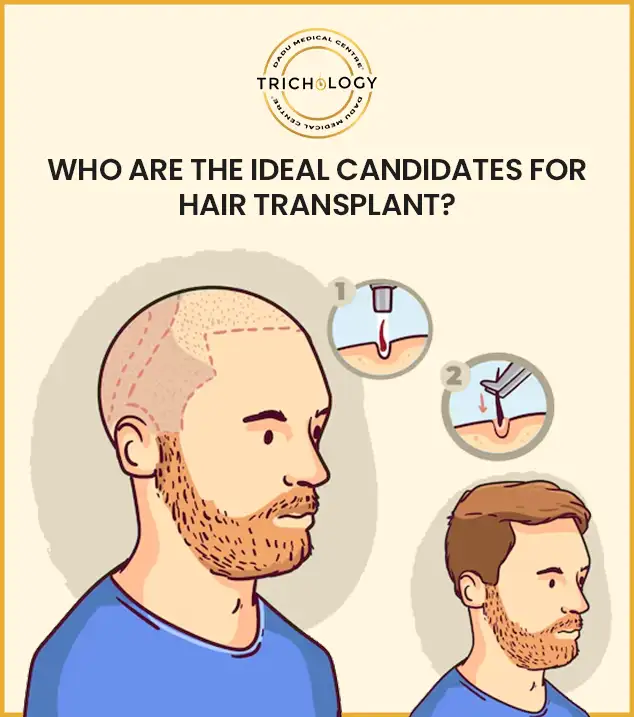
Hair transplant is a suitable option for adults, both men and women, who:
You must consult a hair transplant doctor at DMC Trichology located at Vasant Vihar (South Delhi), Rajouri Garden (West Delhi) to confirm your candidacy for a hair transplant.
1. FUT HAIR TRANSPLANT
Follicular Unit Transplantation (FUT) is a cutting-edge technique used at our centre to provide the most effective hair transplant in Rajouri Garden, Delhi. This therapy involves extracting a linear strip of hair follicles from the donor area. Individual follicles are extracted from the strip, and the prepared grafts are implanted into the recipient area. This surgery requires stitches on the donor area and may leave a scar.
2. FUE HAIR TRANSPLANT
Follicular Unit Extraction (FUE) is an advanced and popular procedure for hair transplant in South Delhi. It involves individually harvesting follicles from the head. These grafts are then implanted into the recipient. The basic principle of FUE is to extract an intact follicular unit which would heal with minimal scarring. This is also referred to as the sutureless method of transplantation. The back and sides of the scalp are the areas which are usually resistant to patterned hair loss (where the hair remains for the longest period). Hair from these areas of the scalp retains its growth, texture, and colour characteristics even after being transplanted to the bald area.
In this technique, the trichologist extracts hair follicles from the hair-rich areas of the scalp, makes small incisions on the recipient area and then implants the grafts within these incisions using specialised tools. While doing the implantation, it is necessary to keep in mind the angle and direction of the native hair on the scalp. Depending on the degree of hair loss and availability of donor sites, one or more sessions are required in most individuals.
3. DMC Golden Touch
DMC Golden Touch is DMC Trichology's exclusive hair restoration treatment. This treatment integrates FUE extraction and advanced implantation technique- Direct Hair Implantation (DHI). This approach is becoming popular as it is a painless surgery without stitches, and provides natural and superior results with precision, no scarring, and swift recovery.
To get the best hair transplant in Delhi, visit DMC -Trichology Centres in Rajouri Garden (West Delhi) & Vasant Vihar (South Delhi).
During the surgery, the hair from the 'donor' area of the scalp is trimmed short. This makes the procedure easy to perform. Then, the head area where the hair grows is thick and anaesthetized safely.
The small hair grafts are extracted, and then transplanted into the front or bald area of the scalp.
There will be small red scabs on the recipient site. They will be visible for about 7-10 days. One can see their normal appearance after 10-15 days after surgery. There will be a slight redness that might be visible for a few days.
After about 2-4 months of receiving a hair transplant, your transplanted hair will start to push through your skin, which is fine initially. The hair growth happens at different times and speeds, resulting in a patchy start. You can expect full growth of your transplanted hair in about a year.
Post-hair transplant, you must follow these aftercare steps as set by the hair transplant surgeons:
Schedule check-up appointments after 3 months and 6 months after the surgery to see the progress of the results.
Hair transplant surgery lasts for a few hours. The procedure duration is decided based on the surgical technique chosen and the size of the area to be covered with donor hair. Mostly, the hair transplantation procedure is over in a single day, but two sessions may be required in case of extensive hair loss.
The procedure is performed under anaesthetic, and the method does not cause any pain. The scalp will feel a little numb and tender once the anaesthesia wears off. There will be a little redness and swelling for a few days after surgery. One can take mild painkillers (as advised by the doctor) to alleviate any pain and discomfort following surgery.
You will be surprised to have a comfortable experience during a hair transplant surgery in Delhi, India, at DMC Trichology. As local anaesthesia will be injected into the donor and recipient areas, the only pain or discomfort felt by you during the operation would be the injections. After the hair transplant, there will be slight irritation, redness, or swelling, but such discomfort quickly subsides.
Choose us for a hair transplant in Delhi because we offer hair transplant procedures to ensure high-quality care for patients.
The term ‘patterned hair loss’ describes a form of hair loss that occurs in a distinctive pattern and is characterised by a progressive decline in hair production and their eventual thinning. This condition affects up to 50% of males and is characterised by progressive hair loss on the scalp any time after puberty due to an increased response to andro-gens (male hormones). It follows a characteristic distribution.
Yes, Male Pattern Baldness or Androgenetic Alopecia can be corrected through hair transplantation. As the hair follicles are moved from one part of the body to the balding areas.
No, not at all! Hair transplantation is also done to restore the hair of the eyebrows, beard, sideburns, moustache, and more. You can confirm your candidacy for facial hair transplants by scheduling a consultation with a hair transplant surgeon who will assess your condition and give you suggestions accordingly.
Just like any other surgery, hair transplantation also causes some side effects. The most common side effect is less noticeable scarring. Other potential short-term side effects include mild infection, redness of the scalp, bleeding, loss of sensation in the scalp, crusting of the skin and pus formation in the operated sites, itching, inflammation, and pain in the hair follicles. The side effects are minimal when hair transplantation is done by an experienced hair transplant surgeon in a competent clinic on a suitable candidate who properly follows the pre- and post-surgical instructions. When performed by experienced trichologists, complications are rare but may include.
Following a hair transplant, you must take a proper diet while you wait for months to get new hair growth. The essential nutrients you must incorporate in your diet post-hair transplant include protein, iron, zinc, Vitamin A, Vitamin D, and Vitamin D. The foods in which these nutrients are present in loads include dairy products, nuts, pulses, eggs, chicken, fish, seafood, whole grains, leafy vegetables, red meat, carrot, spinach, sweet potatoes, pumpkin, chia seeds, flax seeds, and others. Consuming a proper diet daily after a hair transplant can help accelerate post-surgical healing and encourage enhanced hair growth for transplanted hair follicles.
Hair transplantation requires both expertise, experience, knowledge, artistry and surgical skill. When performed correctly, it offers long-lasting and natural-looking results.
Short hair is typically recommended for a hair transplant so the trichologist can easily operate with better accuracy and precision. We can shave the donor area on the day of the surgery. If you do not want to get your hair short, we will help you avoid it, if possible, based on your specific case requirements.
The hair transplantation procedure is usually not the same for every patient. To know the best hair transplantation procedure for your case, you must schedule a consultation with a hair transplant surgeon for a detailed discussion. During consultation, all options like FUT and FUE will be discussed with you, and you will be provided with expert recommendations. You might need combined hair restoration procedures if you have severe hair loss.
Yes, 2 Lakhs is enough to undergo a hair transplant surgery. However, the cost is generally influenced by the number of grafts transplanted. You can expect up to 6000 grafts for two lakhs for hair transplant surgery in Delhi.
DMC Trichology has the best doctors for a hair transplant surgery in Delhi NCR. With over years of experience and best surgical expertise, the hair transplant surgeon at the clinic has exclusively provided hair transplant surgeries to his patients.
Yes, 4000 hair grafts are considered significant and can provide good coverage for addressing hair loss in various areas of the scalp. However, whether it’s “a lot” depends on factors like the extent of hair loss, desired density, and expectations. It is best to consult at DMC Trichology for your hair transplant in South Delhi.
The hair transplant surgery itself is pain-free, but some people may find the injection a little painful. If you are planning a hair transplant in South Delhi, consult Dr. Nivedita Dadu and Dr. Nandini Dadu at DMC Trichology, as they offer a DMC golden touch, which comes with no pain or scarring, stitches and quick healing.
The transplanted hair is resistant to balding Even after 20 years. However, with the ageing process, you may notice a loss of quality and density of the transplanted hair. This can be prevented by consulting the best doctor for hair transplant surgery in Delhi, at DMC Trichology, and going for a touch-up hair transplant.
Yes, hair transplants are safe procedures when performed by an expert surgeon. Like any other surgery, hair transplants can have side effects. They can cause swelling, redness, bleeding, scarring, or unexpected results, but these can be minimized by getting them done by a skilled surgeon. To get the best hair transplant in Delhi NCR, consult DMC Trichology.
The required number of grafts is specific for every patient. Moreover, whether 1,000 grafts are sufficient for a hairline is determined by individual characteristics, including the severity of hair loss and density. It may be adequate for modest restoration but can be insufficient for extensive restoration. To learn more about how many grafts are required for you, consult the hair transplant doctors for the best hair transplant in Delhi at DMC Trichology.
Resting for 2 to 7 days after a hair transplant is recommended. This depends on one’s healing capacity, technique, and other factors. To provide the best results after Hair Transplant surgery in Delhi, the surgeons at DMC Trichology advise patients to avoid strenuous activity and stick to the surgeon’s post-care guidelines.
After a hair transplant, one should avoid rubbing or scratching the treated area, avoid intense activities for a week, protect the head from the sun by wearing a hat, stick to the surgeon’s advice and avoid smoking and alcohol. You can get more detailed guidelines on how to get a successful hair transplant in South Delhi by contacting DMC Trichology.
Delhi is one of India's best locations for hair transplants, with multiple clinics offering modern techniques and expert doctors. One can get the best hair transplant in Delhi at DMC Trichology. The clinic utilizes advanced techniques like FUE and the signature technique, DMC-Golden Touch.
The number can vary from patient to patient. For Hair Transplant in South Delhi, one may require around 1,000-4,000 grafts for coverage. It also depends on the patient's severity of balding.
For more details on hair transplant surgery in Delhi, India, and to benefit from it, visit DMC Trichology located at Rajouri Garden (West Delhi) & Vasant Vihar (South Delhi). for comprehensive information.
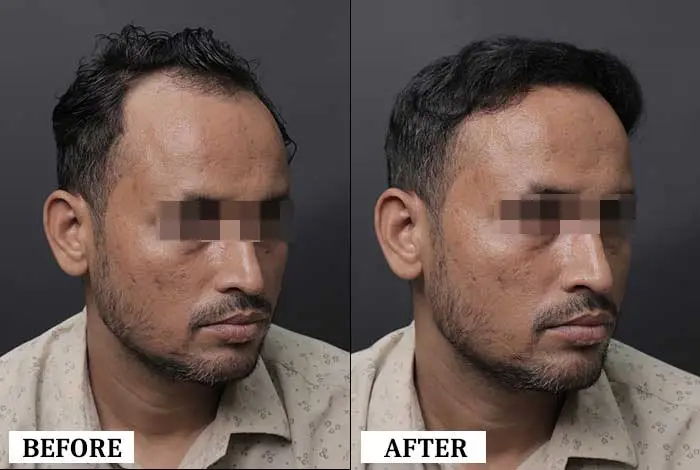
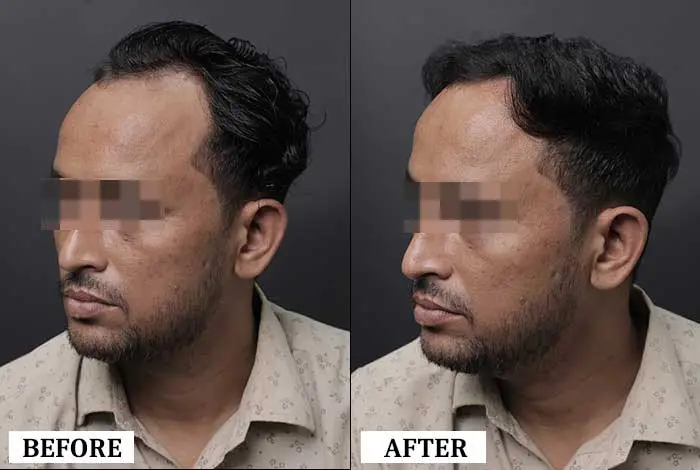
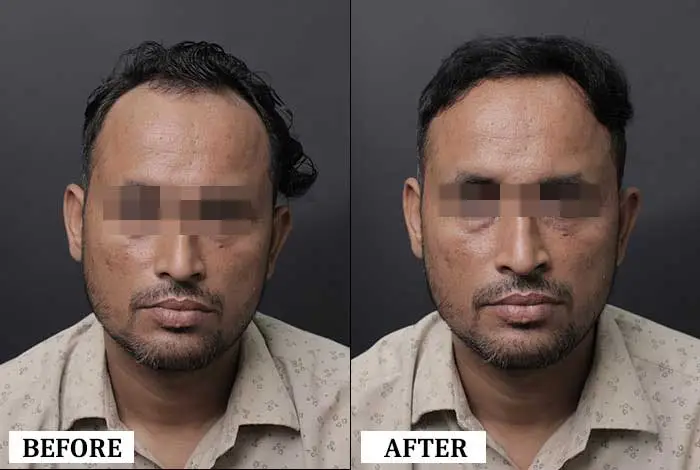
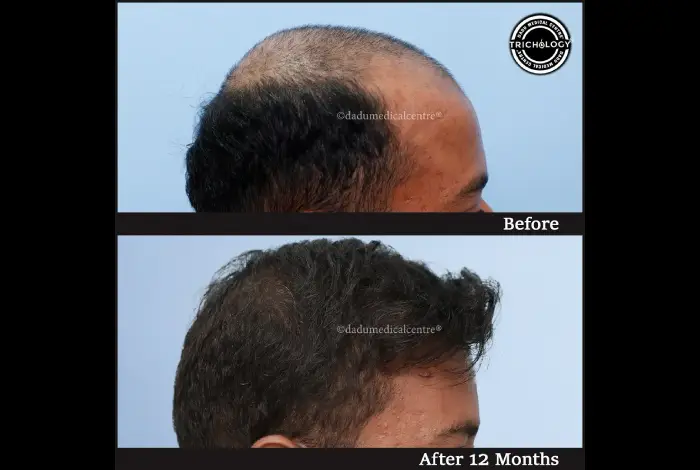
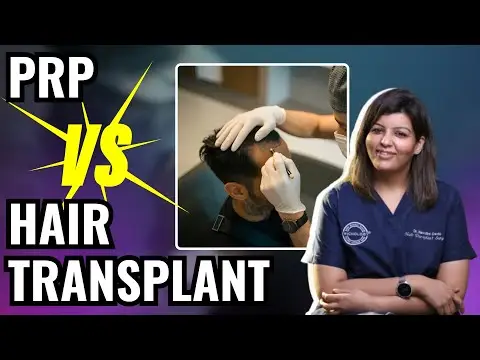
P-R-P Vs Hair Transplant ? | Best Treatment for Hairloss | Dr. Nandini Dadu
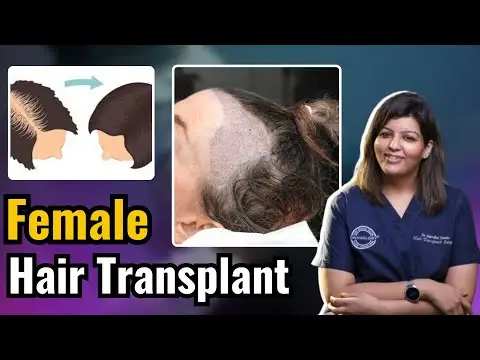
Female Hair Transplant | Good or Bad ? | Dadu Medical Centre
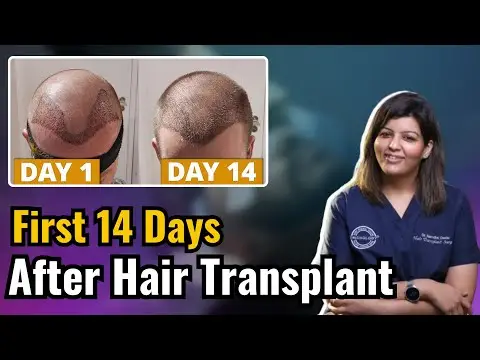
First 14 Days After Hair Transplant | Dos and Don'ts | Dr. Nandini Dadu
Monday to Saturday : 9:00 AM to 8:00 PM Sunday : 10:00 AM to 7:00 PM